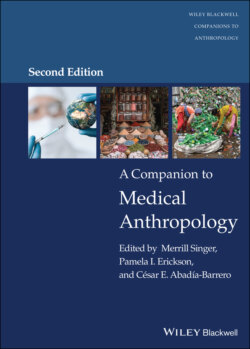Читать книгу A Companion to Medical Anthropology - Группа авторов - Страница 22
Keeping the Tent Big
ОглавлениеVarious answers to the cri de coeur notwithstanding, Christie Kiefer’s contribution to the definitional debate (1975) bemoaned the “irritating question” to begin with (p. 1). Kiefer worried that in trying to delimit the subfield we may cause it to wither on the vine. The quality that makes the field helpful and interesting, he said, is its very disorderliness. This only makes us “seasick” he says because “medicine thrives on orthodoxy” (p. 1); the quest to define medical anthropology reflects, he suggested, an infection with medicine’s quest for “exactitude” (p. 2). Contrasting “certainty on the one hand and meaningfulness on the other,” Kiefer argued that we should “stoutly insist” on keeping medical anthropology undefined and indeterminate.
While SMA and some of the cognate associations that emerged globally have offered various concrete definitions of the subfield’s focal concerns, and medical anthropology does have a sociocultural emphasis overall, it has matured into an inclusive arena for scholarship concerning health as a biocultural phenomenon. Furthermore, as Hsu and Potter argue, the field is “polymorph”: there are no “distinctive national styles of doing medical anthropology; diversity prevails even within a single language community [and] trans-Atlantic exchanges have always drawn on a serious engagement with research in Asia, Africa, Meso- and South America” (2012, p. 1). Likewise, Metzner and Warren position medical anthropology as a “global discipline” (2018, p. 551).
That said, many today (Metzner and Warren included) advocate increased postcolonial perspective in the discipline, particularly when working in regions that have served as research laboratories for the Global North. Mvetumbo, Oware, Yotebieng, and Syvertsen further the call for decolonization, urging colleagues working in the Global South to reduce dependency on theory generated in and for the Global North – dependency supported not just by the latter’s intellectual hegemony but by related structural factors in the Global South that make it “a challenge knowing what other researchers in our own space or country are doing” (2020).
